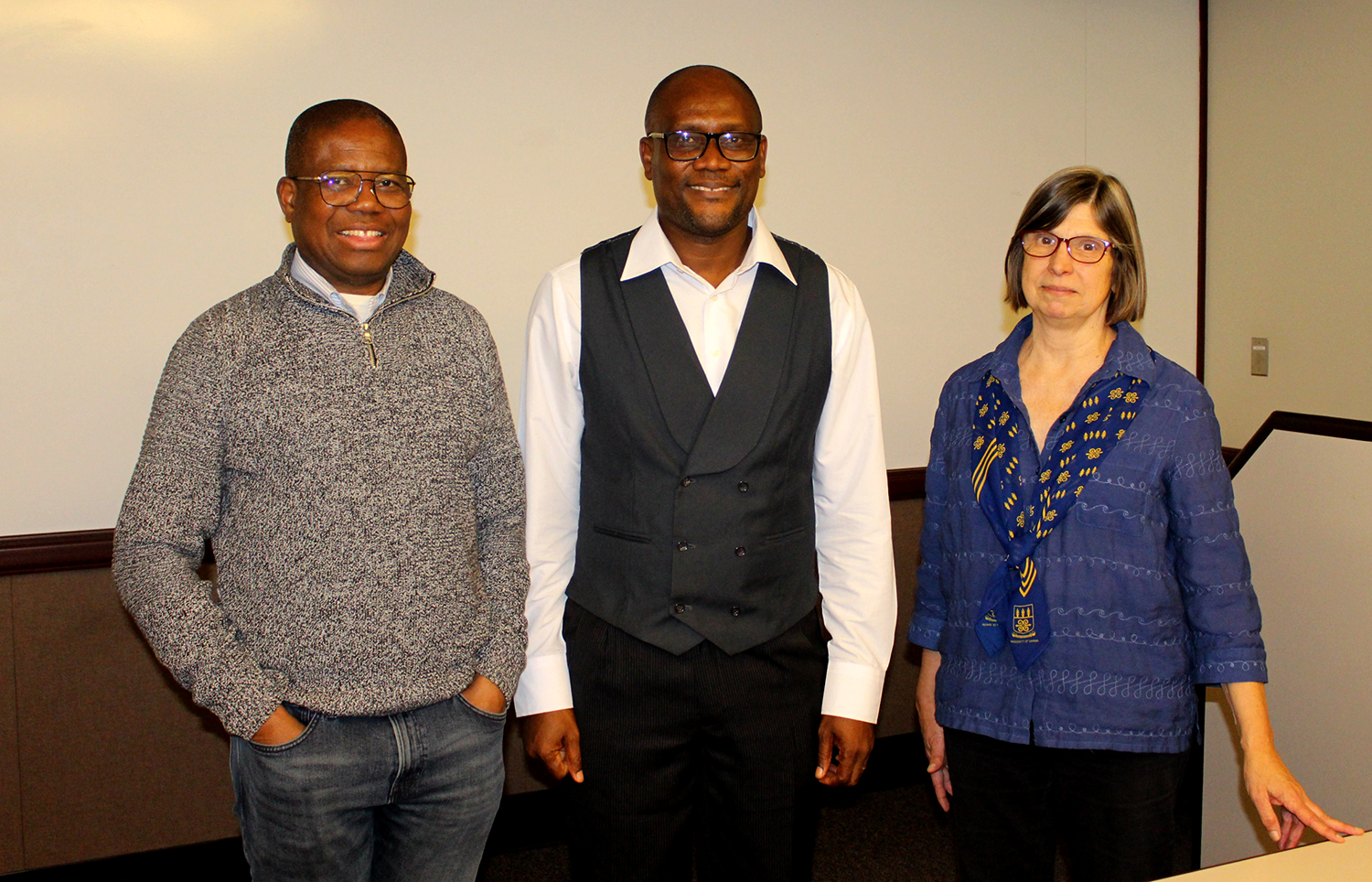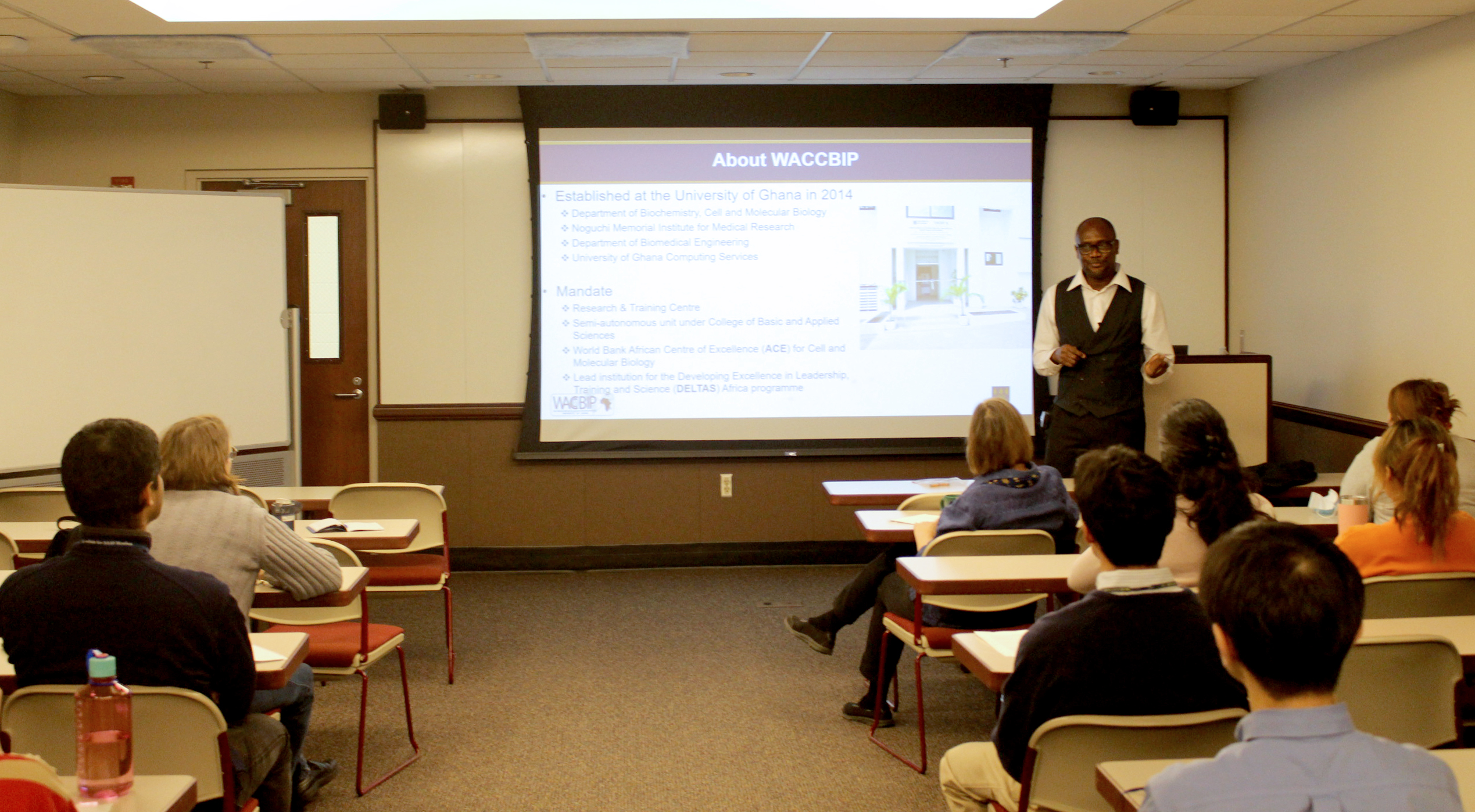
A leader at a top biomedical research institution in Ghana visited Ann Arbor recently to meet existing collaborators and potentially engage new partners.
Professor of Microbiology and Immunology Alice Telesnitsky has had collaborations with the West African Centre for Cell Biology of Infectious Pathogens (WACCBIP) for several years. In April, she welcomed Dr. Osbourne Quaye, a Professor at WACCBIP and Chair of the University of Ghana's Department of Biochemistry, to Michigan Medicine to tour facilities and discuss future partnerships.
Dr. Quaye presented April 25 to a group of invited UMMS Microbiology and Immunology researchers, reviewing the history of his institute, its research priorities, and opportunities for collaborations.
“A key thing for our Centre is to develop partnerships, and we have an extensive network of partners, both regional and international. (UMMS) Microbiology and Immunology has added to this list significantly,” Quaye told the group gathered April 25. “So I am here in part to ask whose lab will be next?”
Established at the University of Ghana with support from the World Bank, WACCBIP is a research and training institute intended to bolster biomedical research capacity in Ghana and beyond. The initial charge to focus on infectious disease has since expanded to include research about non-communicable diseases as well.
Since its founding in 2014, WACCBIP has trained more than 300 masters- and PhD-level researchers from across sub-Saharan Africa, in addition to a few dozen post-doctoral fellows. The institution has contributed important research about malaria, tuberculosis, HIV, COVID-19 and other illnesses, publishing 350-plus papers, often with international collaborators.
Quaye’s own lab has conducted joint research with a growing list of UMMS Microbiology and Immunology faculty including Christiane Wobus, Cheong-Hee Chang, Malini Raghavan, Teresa O'Meara and others who have welcomed WACCBIP scholars for research training. Telesnitsky, who has hosted a WACCBIP scholar in her lab to conduct HIV research, is the founder of the WACCBIP/University of Michigan collaboration, and the partnership was supported in part by a Global REACH Partnership Development Grant in 2019.
“Our ongoing collaboration with WACCBIP has been meaningful,” Telesnitsky said. “Not only has it benefitted the trainees we have hosted in our department, but it aligns with our department's mission to advance global microbiology and Immunology challenges. They have expertise we do not have, so it has been a wonderful match.”

